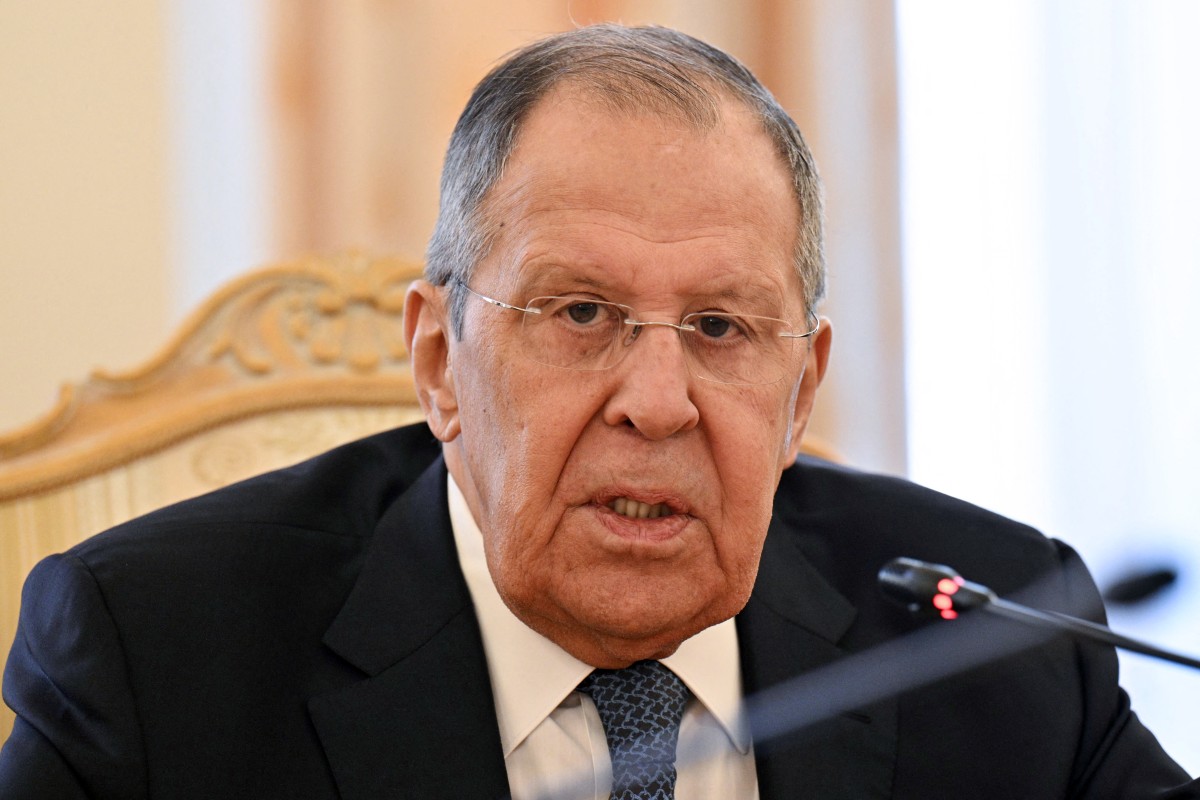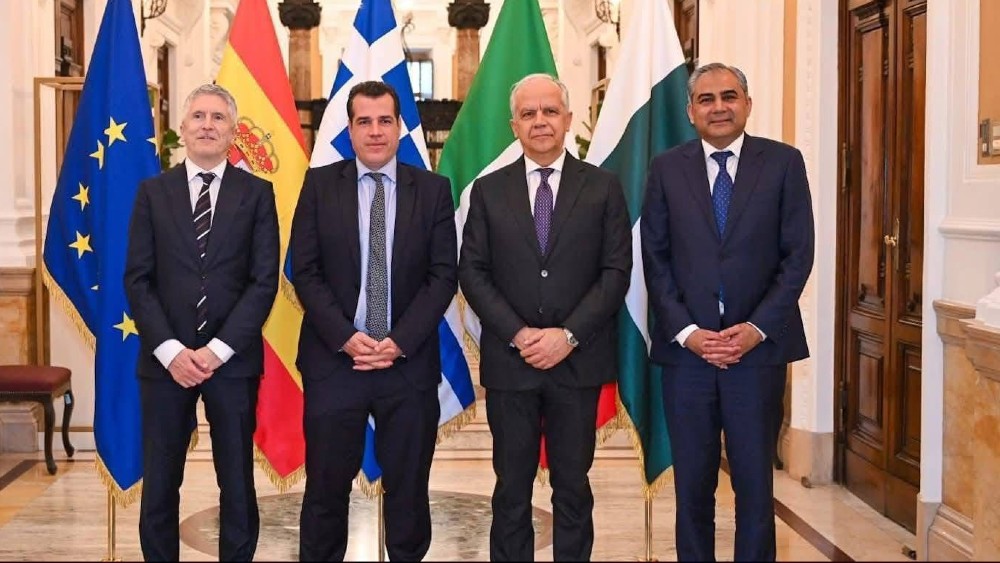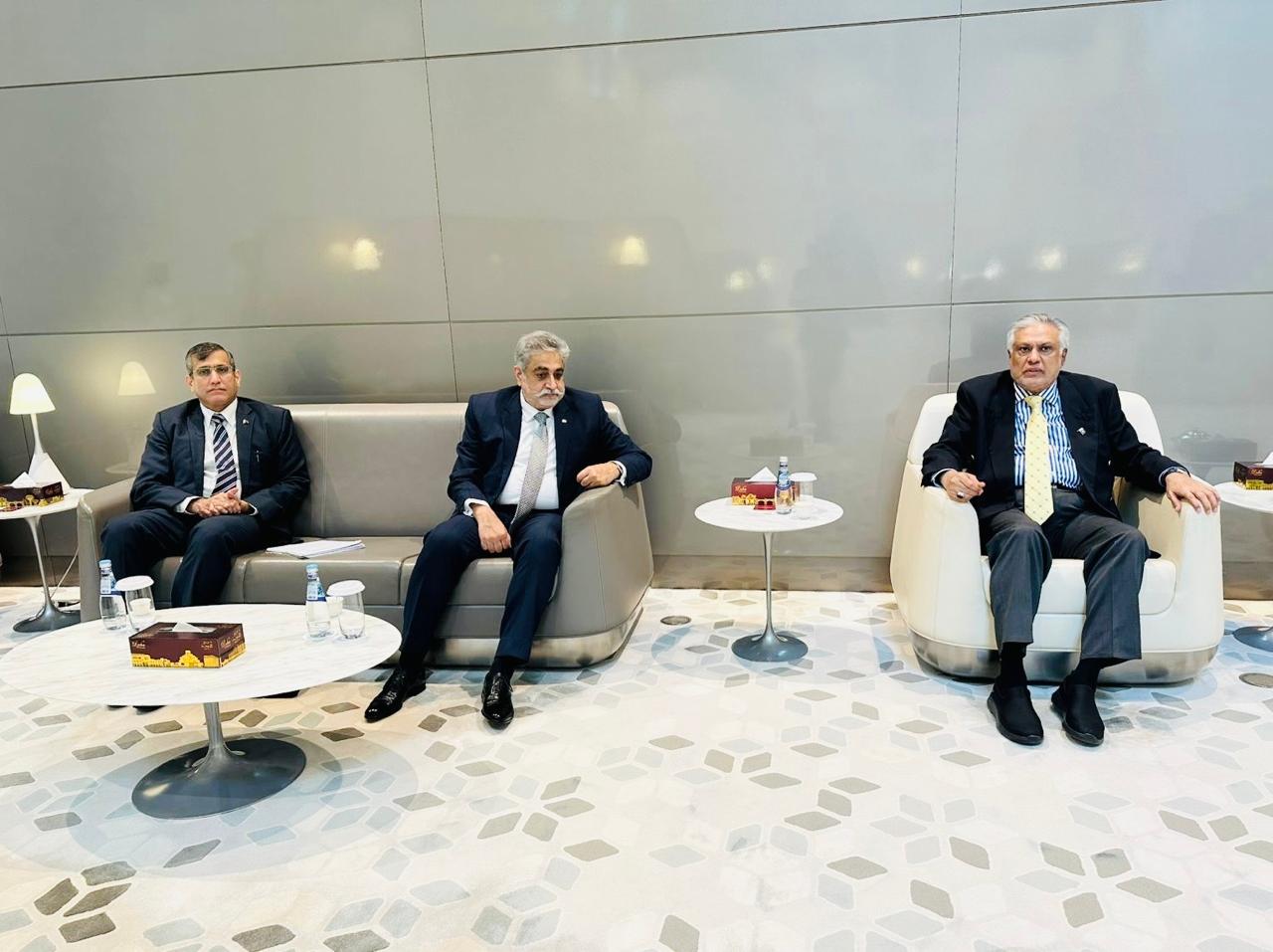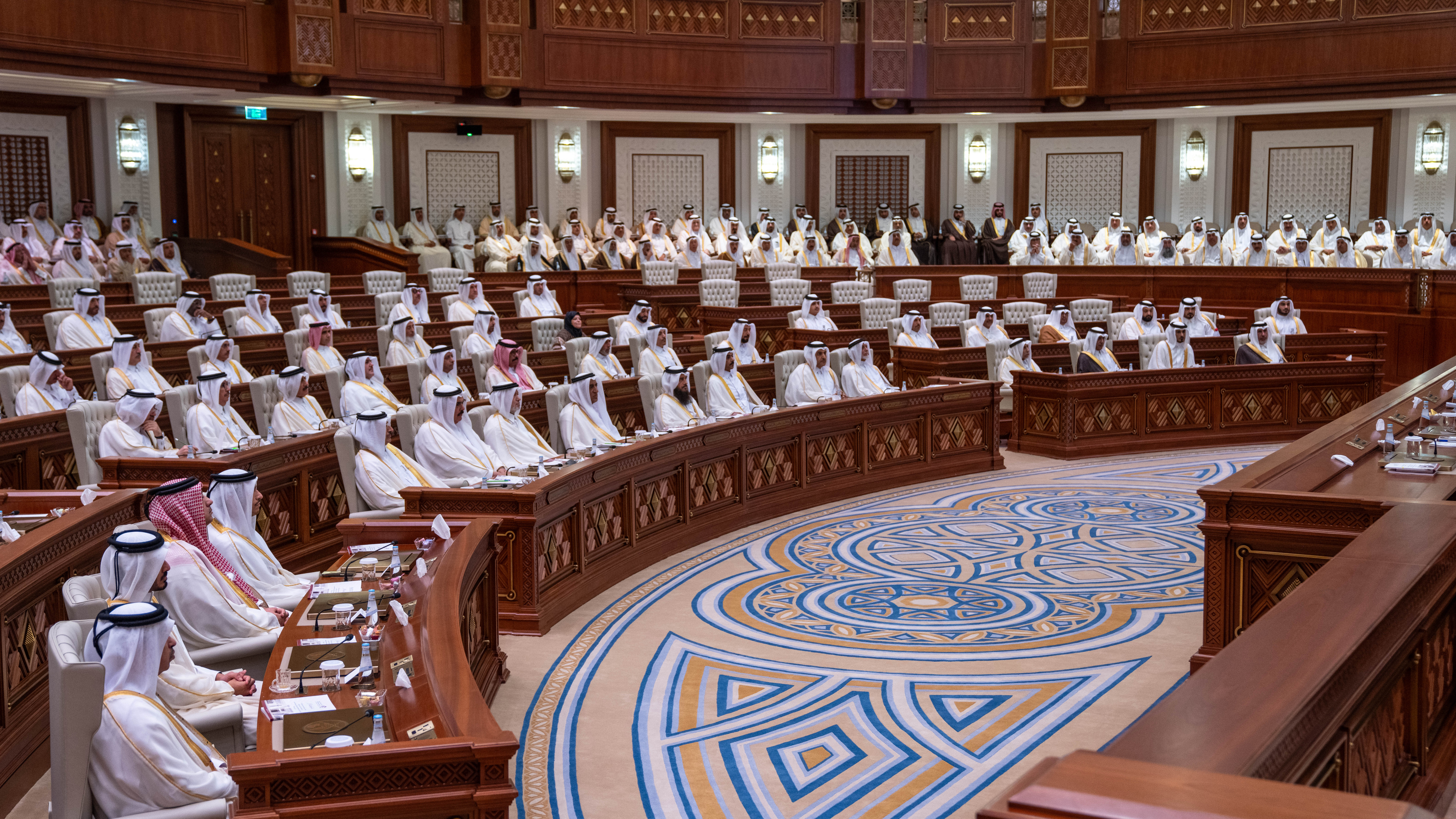ISLAMABAD: Pakistan’s Foreign Minister Ishaq Dar arrived in Doha on Sunday to attend the Arab-Islamic Foreign Ministers’ meeting, according to the ministry of foreign affairs.
Soon after his arrival, he met his Egyptian counterpart, Foreign Minister Dr. Badr Abdelatty, on the sidelines of the preparatory foreign ministers’ meeting for the Emergency Arab-Islamic Summit in Doha.
They condemned the illegal Israeli strikes on Qatar and other Muslim nations, terming them blatant violations of sovereignty and international law. Both reaffirmed their unwavering support for the Palestinian cause and stressed the urgent need for unity across the Muslim Ummah.
Dar to present Pakistan’s stance
The Arab-Islamic Foreign Ministers’ meeting will begin shortly, where OIC Secretary General Hissein Brahim Taha will deliver an address.
Ishaq Dar will present Pakistan’s stance on Israel’s attacks on Qatar during the meeting.
The meeting will review the situation following the recent Israeli attacks on Qatar.
A draft resolution against Israeli aggression will be prepared in the session. The agenda for the upcoming Arab-Islamic Summit will be finalized during the meeting.
PM Shehbaz to attend session on Monday
Prime Minister Shehbaz Sharif will attend the Arab-Islamic Summit scheduled for tomorrow (Monday, September 15).
The meeting will finalize a strong response to the recent Israeli aggression, while the participating foreign ministers will also deliberate on a joint strategy to counter Israeli hostilities.
Shehbaz and heads of countries from the Organization of Islamic Cooperation (OIC) member nations will attend the summit.
“The Summit has been convened in the wake of Israel’s airstrikes on Doha and the escalating developments in Palestine,” the foreign office said.
“Unlike previous emergency meetings from Muslim platforms that were often delayed, this one has been convened swiftly, reflecting the seriousness of the situation,” Mansoor Jafer, Al-Arabiya Urdu chief, told Pakistan TV, terming Israel a “bully state.”
He said Qatar’s diplomatic support from Muslim countries and beyond highlights its legitimacy as a mediator and its growing weight in regional diplomacy.







